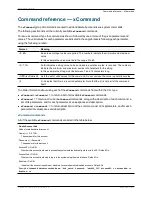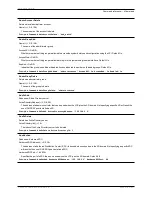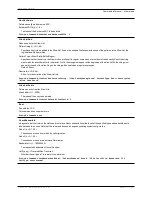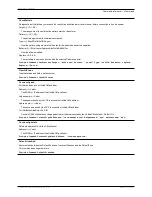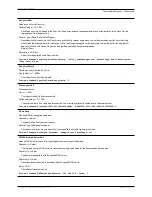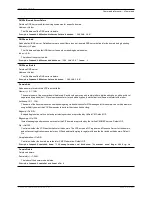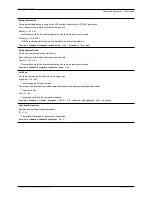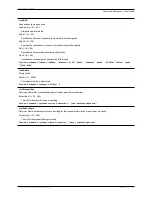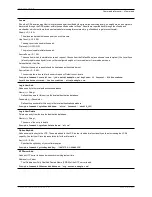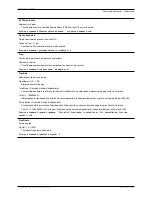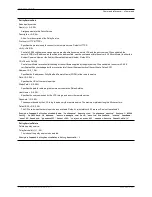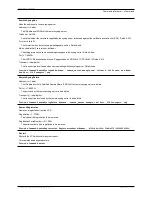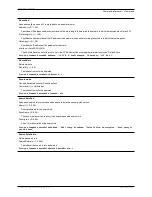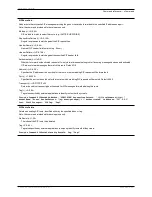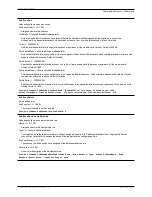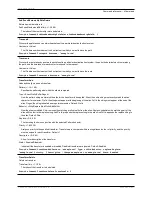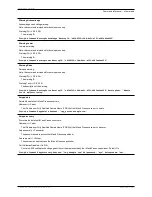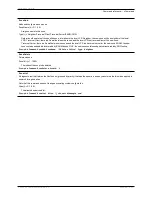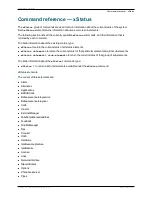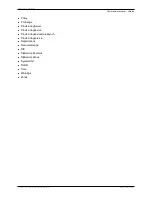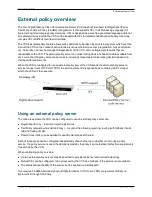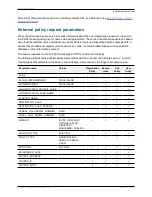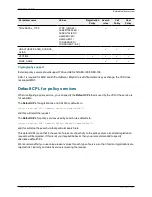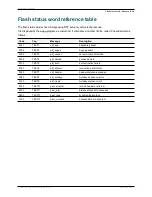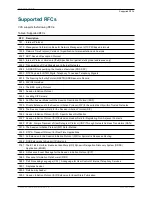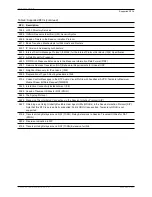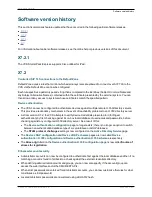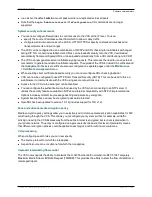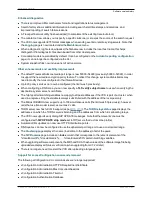
SIPRouteAdd
Adds a route that will cause SIP messages matching the given criteria to be forwarded to the specified IP address and port.
Note: this command is intended for developer use only.
Method(r): <S:0, 64>
SIP method to match to select this route (e.g. INVITE, SUBSCRIBE).
RequestLinePattern(r): <S:0, 128>
Regular expression to match against the SIP request line.
HeaderName(r): <S:0, 64>
Name of SIP header field to match (e.g. Event).
HeaderPattern(r): <S:0, 128>
Regular expression to match against the specified SIP header field.
Authenticated(r): <On/Off>
Whether to forward authenticated requests.
On
: only forward requests along route if incoming message has been authenticated.
Off
: always forward messages that match this route. Default: Off
Address(r): <S:0, 39>
Specifies the IP address of the next hop for this route, where matching SIP requests will be forwarded.
Port(r): <1..65534>
Specifies the port on the next hop for this route to which matching SIP requests will be routed. Default: 5060
Transport(r): <UDP/TCP/TLS>
Determines which transport type will be used for SIP messages forwarded along this route.
Tag(r): <S:0, 64>
Tag value specified by external applications to identify routes that they create.
Example:
xCommand SIPRouteAdd Method: "SUBSCRIBE" RequestLinePattern: ".*@(%localdomains%|%ip%)"
HeaderName: "Event" HeaderPattern: "(my-event-package)(.*)" Authenticated: On Address: "127.0.0.1"
Port: 22400 Transport: TCP Tag: "Tag1"
SIPRouteDelete
Deletes an existing SIP route, identified either by the specified index or tag.
Note: this command is intended for developer use only.
SipRouteId: <1..20>
The index of the SIP route to be deleted.
Tag: <S:0, 64>
Tag value specified by external applications to uniquely identify routes that they create.
Example:
xCommand SIPRouteDelete SipRouteId: Tag: "Tag1"
Cisco VCS Administrator Guide (X8.1.1)
Page 483 of 507
Reference material
Command reference — xCommand

